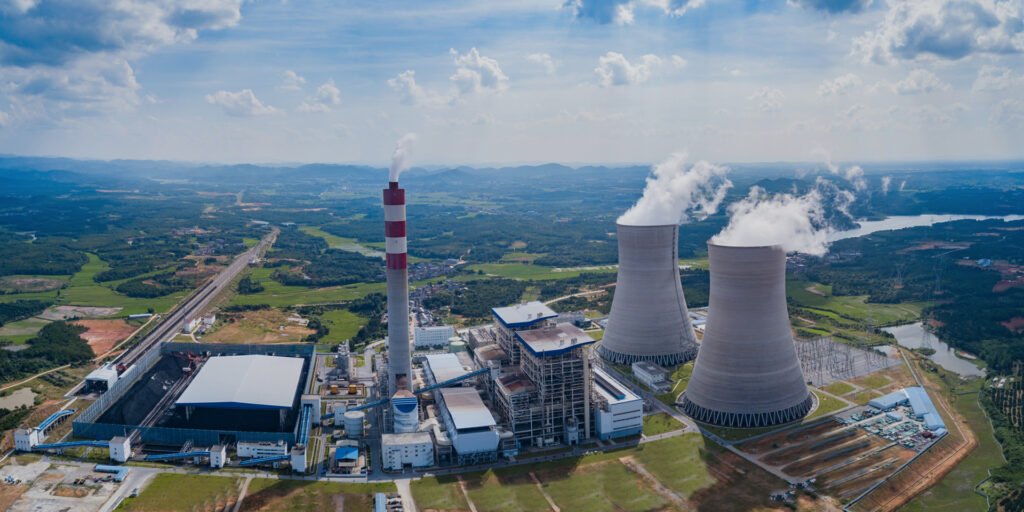Boiler islands are critical components of coal-fired power plants, forming the heart of the power generation process. They play a central role in ensuring the efficiency, safety, and reliability of the entire plant. Modern boiler islands integrate multiple advanced systems, including water treatment systems, energy optimization strategies, and strict safety protocols, which collectively enhance plant performance.
As power plants face increasing pressure to reduce emissions, lower operational costs, and maximize energy output, optimizing boiler island performance becomes essential. This article explores how boiler island systems contribute to improved efficiency, operational safety, and sustainable energy production.
Water Treatment System in Boiler Island
A high-quality water treatment system in boiler island is essential for the longevity and efficiency of the boiler and turbine units. Poor water quality can lead to scaling, corrosion, and fouling, all of which reduce heat transfer efficiency and increase maintenance costs.
Modern water treatment processes typically involve demineralization, chemical dosing, filtration, and continuous monitoring of water parameters such as pH, conductivity, and dissolved oxygen levels. These processes ensure that the boiler water remains within optimal conditions, preventing damage and enhancing energy efficiency.
A properly maintained water treatment system not only prolongs equipment life but also improves heat transfer efficiency, which reduces fuel consumption and lowers operating costs. Furthermore, real-time water quality monitoring allows operators to detect and correct potential issues before they escalate, minimizing downtime and preventing unplanned maintenance.
At Runh, we provide advanced water treatment solutions specifically designed for boiler islands. Our systems are customized to meet the needs of each facility, ensuring optimal boiler performance, reduced maintenance requirements, and enhanced operational efficiency. By partnering with Runh, coal-fired power plants can maintain consistent energy output while extending the life of their critical equipment.

Boiler Island Energy Optimization Strategies
Implementing effective boiler island energy optimization strategies is crucial for improving the overall efficiency of coal-fired power plants. Energy losses in a boiler island typically occur through flue gases, auxiliary equipment, and inefficient heat transfer. By targeting these areas, plants can significantly improve efficiency.
Some of the key strategies include:
Flue gas heat recovery: Capturing residual heat from flue gases to preheat feedwater or generate additional steam.
Variable frequency drives for auxiliary equipment: Optimizing the operation of pumps, fans, and blowers to reduce unnecessary energy consumption.
Advanced control systems: Using automated control algorithms and predictive analytics to maintain optimal combustion conditions and reduce fuel waste.
Digital twin technology: Simulating boiler island operations to anticipate potential performance issues and optimize energy use under varying load conditions.
By implementing these strategies, coal-fired power plants can achieve higher efficiency ratings while minimizing environmental impact. Reduced fuel consumption not only lowers operational costs but also decreases carbon emissions, aligning with modern environmental regulations.
Coal-Fired Power Plant Boiler Island Safety
Coal-fired power plant boiler island safety is a top priority, as boiler islands operate under high pressure and temperature conditions. Potential risks include steam leaks, furnace explosions, tube ruptures, and corrosion-related failures.
Modern boiler islands address these risks with multiple safety layers:
Automated shutdown systems for emergency conditions
Pressure relief valves and safety valves to prevent overpressure
Continuous monitoring of temperature, pressure, and water chemistry
Routine inspection and predictive maintenance programs
Training programs for staff ensure that operators understand safety protocols and can respond effectively in emergency situations. Prioritizing safety not only protects personnel and equipment but also reduces downtime and maintains consistent energy production, thereby indirectly improving plant efficiency.
Company Promotion: Runh offers comprehensive safety solutions for boiler islands, including monitoring systems, safety audits, and maintenance programs. By adopting Runh’s solutions, power plants can reduce operational risks, improve reliability, and achieve higher overall efficiency.
Conclusion
Boiler islands are the backbone of coal-fired power plants, directly affecting efficiency, reliability, and safety. By integrating a high-quality water treatment system in boiler island, implementing advanced boiler island energy optimization strategies, and maintaining rigorous coal-fired power plant boiler island safety measures, power plants can significantly enhance operational performance.
Companies like Runh provide end-to-end solutions for boiler island optimization, from water treatment to energy management and safety compliance. Investing in advanced boiler island systems not only upgrades technology but also ensures sustainable, safe, and cost-effective power generation.

 Instant
Quote
Instant
Quote Email
Us
Email
Us